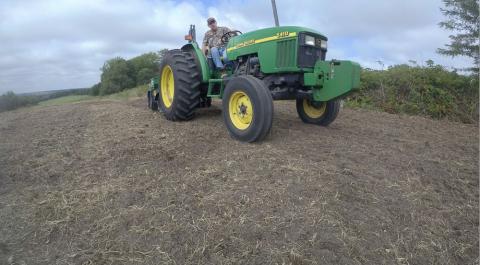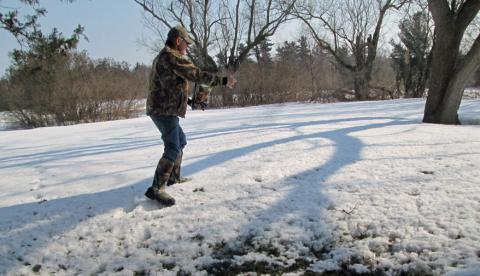Your tent is your home away from home when you are out enjoying nature on a camping or hiking adventure. And, just as with your home, a little preventative maintenance goes a long way to prolong the life of your tent.
Despite their apparently flimsy construction, most quality tents are made from highly durable materials. However, extensive exposure to UV rays, wind, and rain can deteriorate even the toughest of tents. Follow these easy tent maintenance tips for before, during, and after your camping trip to improve your tent performance and keep it in top condition.
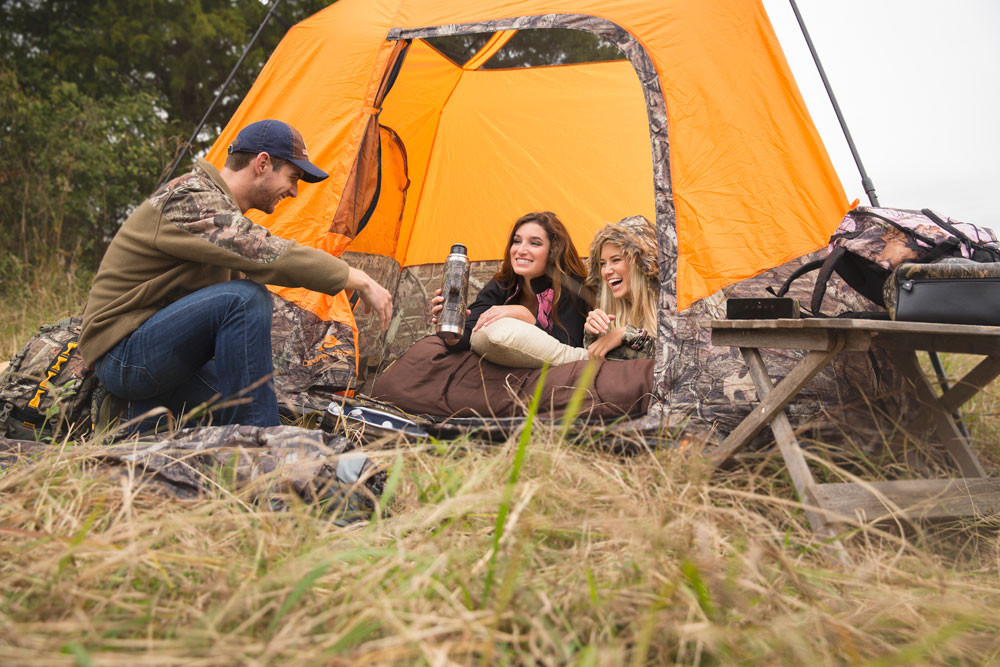
1. Look for a Debris-Free Campsite
Most campers practice Leave No Trace camping principles, which means your campsites should be free from garbage, broken glass, and other hazardous materials. Pitching your tent on an established campsite, rather than the wilderness, usually assures you of a site without branches or vegetation that could damage your tent. Wherever you set up camp, clear away debris that could tear a hole in the base of your tent before setting up.
2. Use a Tent Footprint
You can minimize tent-base damage caused by rugged ground by setting down a footprint before pitching your tent. Use a footprint that is specifically designed for your tent model, as the edges of the ground cover shouldn’t extend beyond the perimeter of the tent, trap rainwater, or grow mildew.
3. Choose a Site with Minimal Sun Exposure
UV rays degrade tent materials, weakening the tent exterior. It’s especially damaging to pitch tents in the sun for long-term camping trips. Choose a site that is only exposed to the sun for short periods of the day, or move your tent to a shady area if you plan to be away for most of the day. You should also use your rain fly. This tent covering not only keeps the rain off your tent but is also UV-resistant.
4. Set Up Gently
Unfold and fit tent poles one at a time, and avoid swinging the poles around to connect the sections with the shock cord. Handling your tent roughly could dent or scratch the poles and lead to corrosion. Avoid tugging too hard on anchor points and guy lines, as this can lead to fraying.
5. Treat Zippers Kindly
Zippers inevitably get stuck, but don’t force a tent zipper and risk ripping the stitching or splitting the teeth. Instead, hold the zipper with one hand to create slight tension, and then wiggle the zipper back up to remove the jammed fabric.
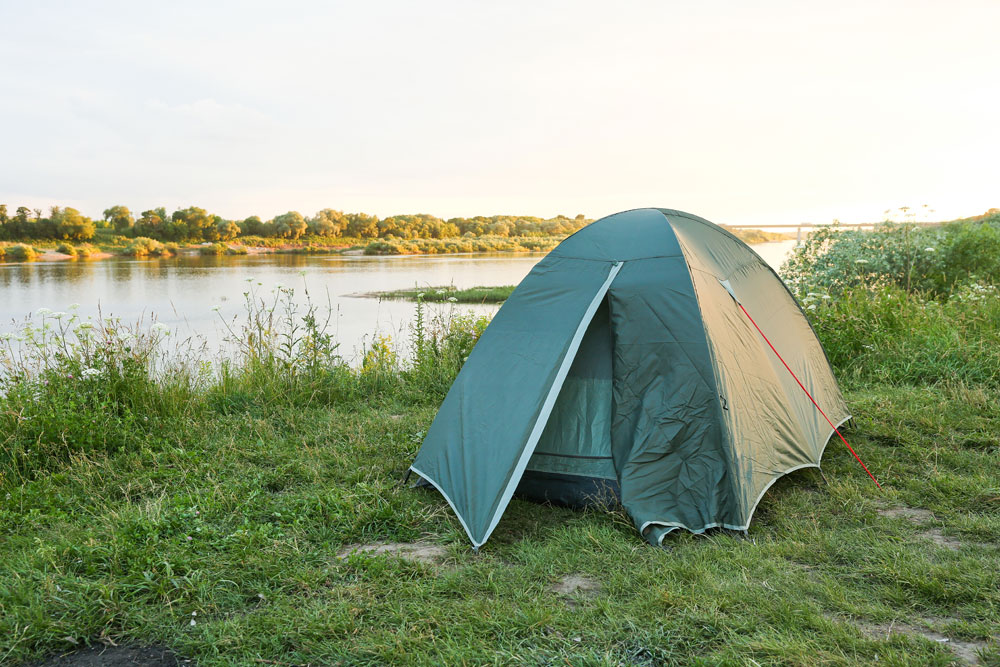
6. Leave Your Boots Outside
Muddy boots dirty your gear and leave debris, pebbles, and grit on the tent floor, which abrades the tent material. Keep your boots in a vestibule or outside your tent.
7. Store Food Outside the Tent
Food and other fragrant, non-edible items attract insects that can nibble holes in the tent fabric. Keep your cooking supplies and toiletries in a secure container outside your tent. If you are staying in an area populated by bears or other large predators, use a bear-safe food locker or bear canister and dispose of garbage in lockable trash receptacles at your campground.
8. Clean Your Tent Before Packing Up
Use a brush or shake out your tent to remove dirt and debris before packing your tent away. This prevents abrasion, bacterial growth, or mold development while your tent is in storage.
9. Break Down Your Tent Starting at the Middle
When removing the poles from your tent, break them down in the middle to evenly distribute the tension along the remaining poles and avoid tearing the tent. You should also push, rather than pull, shock-corded poles out of their sleeves to reduce tension and prevent breakage.
10. Never Pack a Tent Wet
Even a little moisture on your tent serves as a breeding ground for mold and mildew, which can stain your tent fabric and create a hazardous space to sleep. Regardless of how well-ventilated your tent is, the interior will collect some condensation during the night, and rain flys collect dew in the morning. Remove the rain fly and hang it over a high branch, and then open all the doors, windows, and ventilation points on your tent to air it out before packing.
If you are packing up in damp conditions, dry your tent properly when you get home before putting it into long-term storage.
11. Roll Your Tent
Avoid stuffing your tent into its storage bag. Instead, roll your tent like a sleeping bag or carefully fold it. This preserves the integrity of the fabric and protects the coatings and seam tape.
12. Clean Your Tent Before Storage
When camping season is over, clean and thoroughly dry your tent before putting it in storage. Use a gentle, non-abrasive sponge and mild soapy water to carefully scrub soiled areas, and be extra-gentle when cleaning rain flys and seams to retain the coatings.
13. Make Necessary Repairs
Inspect your tent for rips, holes, or damaged seals and coatings before and after each trip. Make repairs to prevent problems from aggregating or expanding.
Replace seam tape, allowing it to cure properly, to prevent future leaks. Repaint waterproof coatings on rain flys and tent floors if you notice any peeling. If the tent floor becomes sticky or emits a foul odor, it's time to buy a new tent.
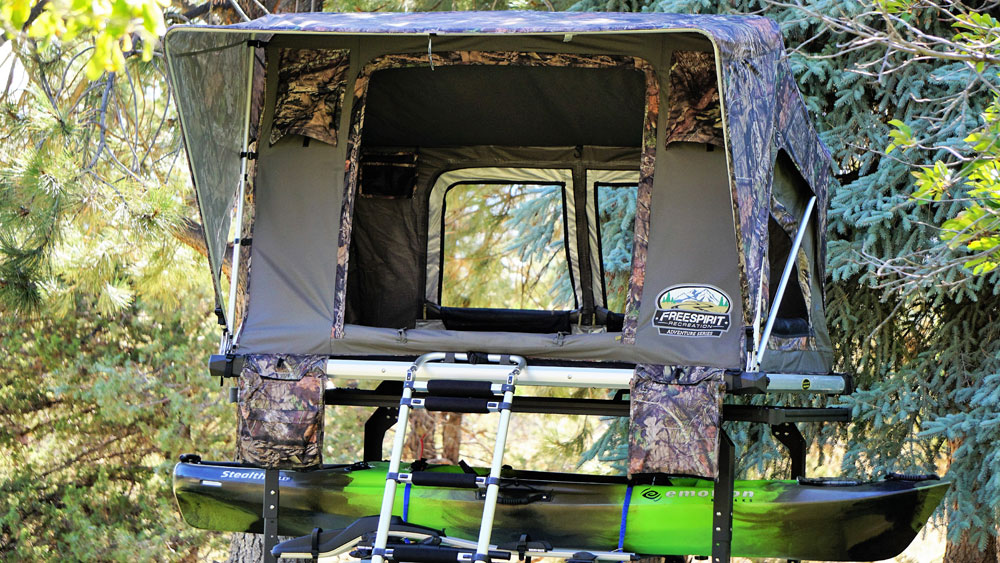
How to Choose a Tent
If it's time for an upgrade, there are a few factors to take into consideration when you are deciding how to pick a tent.
Budget is often a major determinant when it comes to choosing a tent. If you frequently go camping, then think of a tent as an investment. It may be more cost-effective to buy a high-quality tent at a high price point that provides you with a long-lasting product. However, price isn’t always an indicator of quality, so research and compare tent materials and features before making your purchase.
The capacity is also important to consider. The advertised capacity is not always indicative of the actual amount of space inside the tent. Look at the interior dimensions and think about how many people you need to sleep, the sleeping bag configuration, and how much gear you typically take with you. Choose a tent capacity that is slightly larger than you need and which includes a feature like a vestibule for your gear.
Finally, make sure your tent is equipped to deal with the conditions common to your frequent camping grounds. Check the seasonality of the tent and find one with features that allow it to withstand the elements, provide adequate insulation, and maintain its functionality for years.
Taking care to maintain your tent before, during, and after camping keeps your tent performing optimally and prolongs the lifespan of your shelter. Remember to keep your tent free from debris, treat the tent components gently, and never, ever store your tent wet.
Before heading out on your next camping or hunting adventure, explore Mossy Oak for more tips and tricks to enhance your outdoor experience.
















